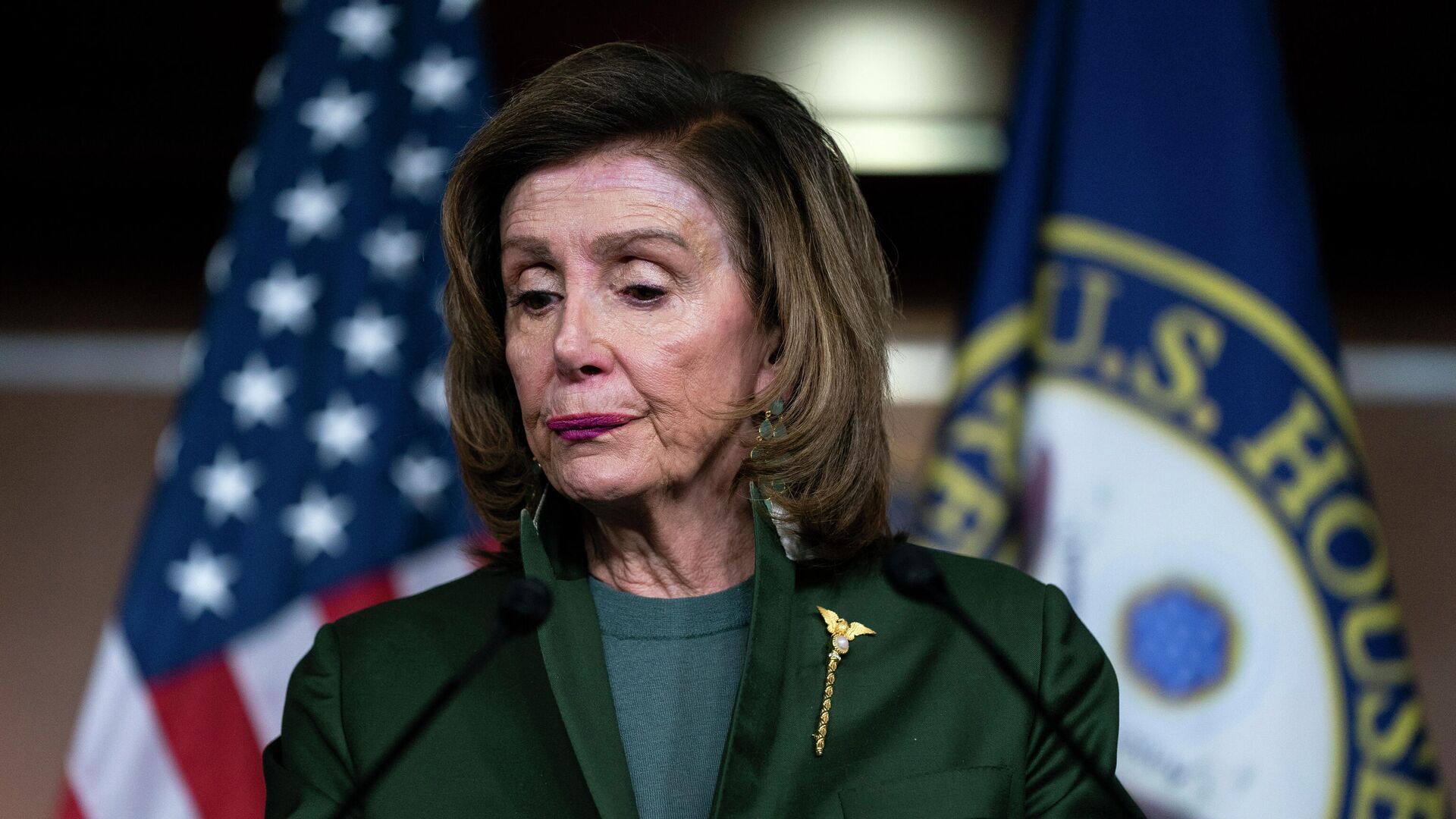https://sputnikglobe.com/20220719/beijing-urges-us-to-cancel-house-speaker-pelosis-taiwan-visit-1097580467.html
Beijing Urges US to Cancel House Speaker Pelosi's Taiwan Visit
Beijing Urges US to Cancel House Speaker Pelosi's Taiwan Visit
Sputnik International
BEIJING (Sputnik) - China is insisting that US cancel the visit of House of Representatives Speaker Nancy Pelosi to Taiwan anticipated in August, considering... 19.07.2022, Sputnik International
2022-07-19T12:48+0000
2022-07-19T12:48+0000
2023-06-19T12:44+0000
china
us
nancy pelosi
taiwan
https://cdn1.img.sputnikglobe.com/img/07e6/02/04/1092735279_0:0:3073:1728_1920x0_80_0_0_90041e3e0d835e43afa3703ce613988f.jpg
Initially, a US delegation headed by Pelosi was expected to visit Taiwan in April. The pending trip, which then sparked a severe outcry from Beijing, could have been the first visit to Taipei by a US House speaker since 1997. It was later reported that Pelosi tested positive for COVID-19 so the US congressmen embarked on their visit to Taiwan without her participation. Meanwhile, Pelosi's visit was postponed for indefinite period of time. The Chinese Foreign Ministry then wished her well and urged Washington not to postpone, but to cancel the visit.He added that if the United States continues to act at its own discretion without taking into account Beijing's position, China will definitely take decisive measures to defend its state sovereignty and territorial integrity, with Washington bearing full responsibility for all the repercussions.China has repeatedly claimed that all official contacts between the US and Taiwan are unacceptable, Zhao said, adding that Pelosi’s visit to Taipei would seriously undermine the political foundation of relations between Beijing and Washington, and send "a gravely wrong signal" to separatist forces advocating Taiwan's independence.Official relations between Beijing and Taipei broke down in 1949 after Kuomintang forces led by Chiang Kai-shek were defeated by the Chinese Communist Party in the civil war and moved to Taiwan. Beijing considers the island to be a part of the country and follows the 'One China' policy, meaning that nations that recognize Taiwan can't have relations with the People's Republic of China.While Washington does not officially recognize Taiwan, it does enjoy close ties with Taipei, delivering weapons to the island and pledging to defend it against possible aggression.
china
taiwan
Sputnik International
feedback@sputniknews.com
+74956456601
MIA „Rossiya Segodnya“
2022
Sputnik International
feedback@sputniknews.com
+74956456601
MIA „Rossiya Segodnya“
News
en_EN
Sputnik International
feedback@sputniknews.com
+74956456601
MIA „Rossiya Segodnya“
Sputnik International
feedback@sputniknews.com
+74956456601
MIA „Rossiya Segodnya“
china, us, nancy pelosi, taiwan
china, us, nancy pelosi, taiwan
Beijing Urges US to Cancel House Speaker Pelosi's Taiwan Visit
12:48 GMT 19.07.2022 (Updated: 12:44 GMT 19.06.2023) BEIJING (Sputnik) - China is insisting that US cancel the visit of House of Representatives Speaker Nancy Pelosi to Taiwan anticipated in August, considering it an infringement on the one-China principle and warning Washington that it will be solely responsible for all ramifications, Chinese Foreign Ministry spokesman Zhao Lijian said on Tuesday.
Initially, a US delegation headed by Pelosi was
expected to visit Taiwan in April. The pending trip, which then sparked a severe outcry from Beijing, could have been the first visit to Taipei by a US House speaker since 1997. It was later reported that Pelosi tested positive for COVID-19 so the US congressmen embarked on
their visit to Taiwan without her participation. Meanwhile, Pelosi's visit was postponed for indefinite period of time. The Chinese Foreign Ministry then wished her well and urged Washington not to postpone, but to cancel the visit.
"We urge the US side to adhere to the one-China principle and the stipulations in the three China-US joint communiqués. The US must not arrange for Speaker Pelosi to visit the Taiwan region and must stop official interactions with Taiwan, stop creating factors that could lead to tensions in the Taiwan Strait," Zhao told a briefing.
He added that if the United States continues to act at its own discretion without taking into account Beijing's position, China will definitely take decisive measures to defend its state sovereignty and territorial integrity, with Washington bearing full responsibility for all the repercussions.
China has repeatedly claimed that all official contacts between the US and Taiwan are unacceptable, Zhao said, adding that Pelosi’s
visit to Taipei would seriously undermine the political foundation of relations between Beijing and Washington, and send "a gravely wrong signal" to separatist forces advocating Taiwan's independence.
"China firmly opposes such a visit," Zhao added.
Official relations between Beijing and Taipei broke down in 1949 after Kuomintang forces led by Chiang Kai-shek were defeated by the Chinese Communist Party in the civil war and moved to Taiwan. Beijing considers the island to be a part of the country and follows the 'One China' policy, meaning that nations that recognize Taiwan can't have relations with the People's Republic of China.
While Washington does not officially recognize Taiwan, it does enjoy close ties with Taipei, delivering weapons to the island and pledging to defend it against possible aggression.

